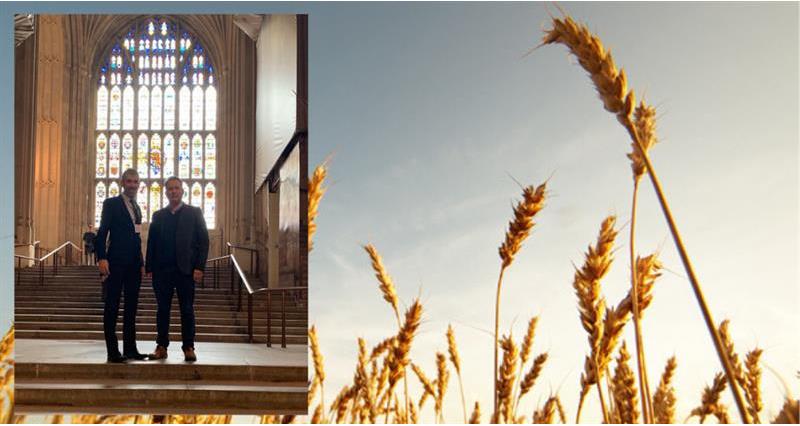On Tuesday, Brett Askew the North East crops board chair, Paul Tompkins the Dairy board vice chair and myself headed to the Palace of Westminster to give oral evidence as part of an inquiry into the introduction of E10 biofuel.
E10 is a higher blend of petrol which contains up to 10% bioethanol. There has been significant investment by industry with two plants established in the North East of England. However, the failure of government to mandate E10 onto UK forecourts has led to the intermittent running of both the Vivergo and Ensus plants which has led to an insecure market for both feed wheat and the high-protein co-product.
The NFU has long been supportive of an introduction of E10 and believe there are many positive impacts on the agriculture industry. The domestic market created for otherwise surplus feed wheat offers an alternative for farmers whom would otherwise be subject to the lower, world export price. In addition, the high-protein co-product referenced above ‘Dark Distillers Grains’ (DDGs) can go some way to help to displace the magnitude of protein inputs and could feed up to 40% of the UK dairy herd. Around half of the 2mt capacity of the plants (if fully operational) is returned to the animal feed sector as this valuable high protein ration ingredient.
The evidence session went well with the NFU being well represented and putting forward some strong arguments from both the dairy and arable view point. The other organisations giving evidence were also wholly supportive of a mandatory E10 introduction and overall it was a positive discussion.
As witnesses we stated that the biggest perceived barrier to E10 introduction could be overcome by sufficient communication to the general public about the benefits of a higher bioethanol blend fuel and the compatibility of their cars. It was also discussed whether there was a benefit of introducing E10 to the UK when electric cars are on the rise, with aims of the transport sector being fully electric in the near future. In our opinion, the question here is why you wouldn’t introduce E10 – regardless of widespread electrification in the future. Even on optimistic timescales there are still huge positives to be gained in terms of air quality and emission reductions from switching to a cleaner fuel, even if the benefits are only apparent over the next 20 - 25 years. As part of the transition to electric vehicles there will still be a large requirement for petrol, especially when it comes to both light and heavy goods vehicles.
The importance of a stable domestic market, open to diversion to animal feed provision if required, cannot be underestimated as we face such political uncertainty. Increasing the food security and sustainability of the UK as well as creating a home-grown protein source must be held off no longer, with an E10 mandate allowing continued investment before we lose the capacity the UK already has. The full benefits of E10 have not yet been felt, but when plants have been in operation and the cycle has been allowed to run, E10 has created a circular agricultural industry which has given a taste of the possibilities in the future.
